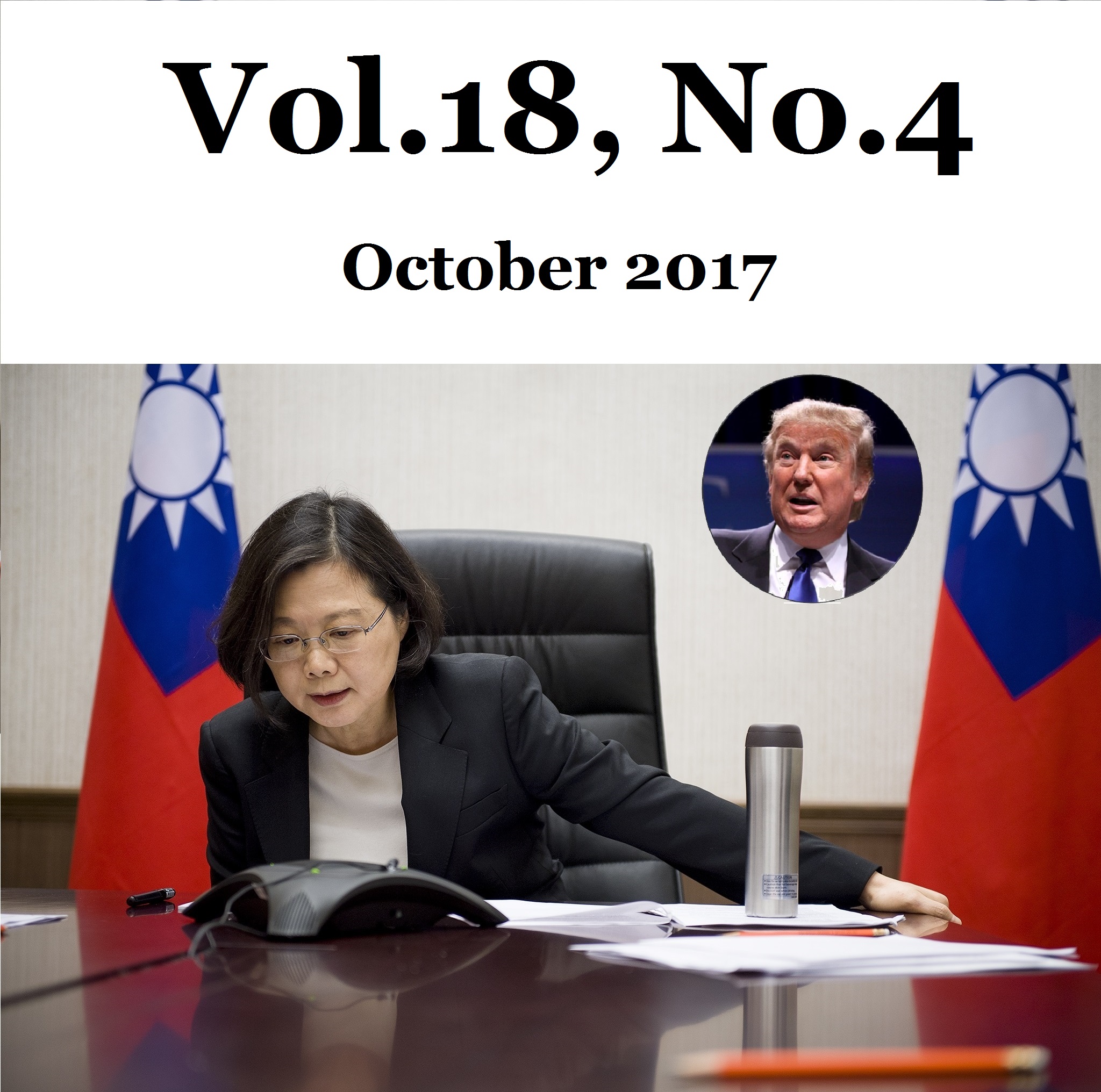Taiwan's Triangular Effect in U.S.-China Interactions
- PDFTaiwan’s Triangular Effect in U.S.-China Interactions-- Pao-wen Li.PDF
- PDFThe Evolution of the Korea-U.S. Alliance after the Cold War-- 1992-2013 by Yi-ting Huang、Teng-chi Chang.PDF
- PDFResearch on the Learning Effectiveness and Perception of Mainland China Students’ Study in Taiwan--Zhi-rong Yan、Liang-chien Lee、 Ching-chung Liu.PDF
Taiwan Social Sciences Citation Index(TSSCI)
Prospect Quarterly Vol.18 No.4 (October 2017)
Taiwan's Triangular Effect in U.S.-China Interactions
Taiwan's Triangular Effect in U.S.-China Interactions
Ph. D., Political Science, Georgia StateUniversity,
As a weak actor in the U.S.-China-Taiwan triangle, what is Taiwan's role in influencing interaction between the United States and China? This paper analyzes the events from 1995 to 2015 to investigate the power of Taiwan-related behaviors in explaining the variations in U.S.-China relations. Statistical analysis in this paper suggests the existence of Taiwan's indirect triangular effect on U.S.-China relations but direct influence from Taiwan is not as significant as expected. Taiwan's indirect triangular effect works in different forms for the United States and China. For China, it is clear that China's cost-benefit analysis in the strategic triangle is influenced by U.S.-Taiwan interactions. For the United States, the statistical result suggests the policy toward Taiwan often leads to policy adjustments toward China, which show a clear preference of the United States to balance cross-Strait relations through its domestic policy-making process.
Keywords:Triangular Relations,U.S.-China Relations, Taiwan, Triangular Effect, Event Data
The Evolution of the Korea-U.S. Alliance after the Cold War: 1992-2013
M.A., Department of Political Science,
National Taiwan University
Teng-chi Chang
Associate Professor, Department of Political Science,
National Taiwan University
This study explores the impact of China's rise on the alliance between the Republic of Korea and the United States. It also helps to understand how third parties exert an influence on the alliance. The study examines four cases of four consecutive Korean governments: under Kim Young-Sam, Kim Dae-Jung, Roh Moo-Hyun and Lee Myung-Bak. It seeks to estimate the strength of the Korea-U.S. alliance, and asks how it has been affected by China's rise and what the theoretical implications of this are. The research sets as a key indicator to measure the solidarity of the Korea-U.S. alliance the treaty obligations various ROK governments were willing to assume. It found that the key factor affecting these obligations is not confined to the structural configuration of power. Domestic political trends and the consequent subjective perceptions about "who is the major threat" played a significant role in the formation/deformation of the alliance.
Keywords:Theory of Alliance, Korea-U.S. Alliance, China Rising,China-Korea Relations, Korean Peninsula
Research on the Learning Effectiveness and Perception of Mainland China Students' Study in Taiwan
Professor, Department of Distribution Management,
Vice-President, Shu-Te University
Liang-chien Lee
Associate Professor, Department of Finance,
Executive Vice-President, I-Shou University
Ching-chungLiu
Former Professor, Graduate Institute ofEducational Administration,
National Pingtung University
By applying statistical analysis using the T-test, analysis of variance (ANOVA), factor analysis and regression analysis, this research investigates the impact factors for mainland China students studying in Taiwan, analyzes the apprehensive perception arising from faculty and students about mainland student policy and examines the mechanisms of recruitment used by Taiwanese universities. The research reveals that the learning outcome for mainland China students studying in Taiwan demonstrates high positive correlation between three independent variables — university resources, campus experience, learning adaptability — and one dependent variable: learning satisfaction. Among these sub dimensions, intercultural study, professional teaching, administration service, social support, academic adaptation and living adaptation demonstrate high positive correlation with learning satisfaction.
Keywords:Mainland China Students, Study in Taiwan, Learning Effectiveness, Learning Process, Cultural Inclusiveness



